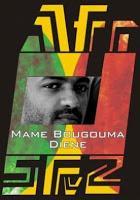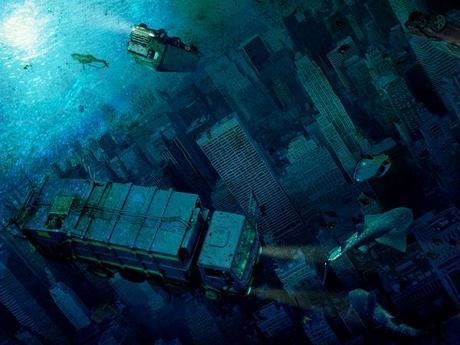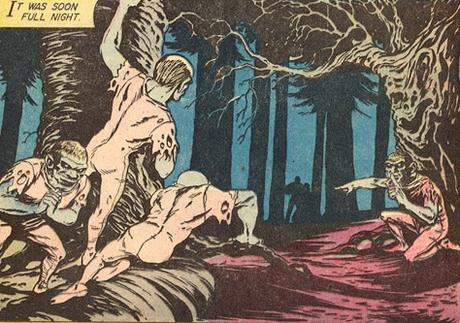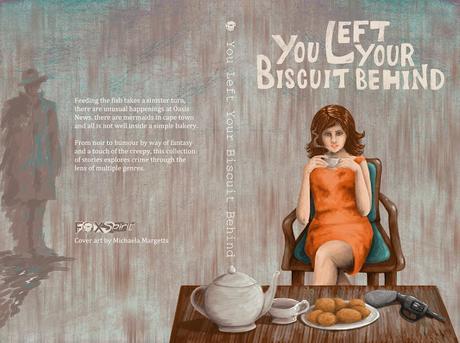
Image via StoryTime
Up next in thisextra, extra special Meet seriesis Hell Freezes Overby Mama Bougouma Diene. Set in a future Earth which has survived a freezing apocalypse - there are fives Castes that each have a role to play in this new world.Diene is a French-Senegalese American humanitarian based in Paris with a fondness for progressive metal, tattoos and policy analysis. He is published inOmenana,Brittle Paperand Edilivres, and is in no position to win the Nobel Prize so he can write whatever he damn wants. In this interview, he shares where the idea forHell Freezes Overcame from, the Caste system in this post-apocalyptic world, and themes of revolt, violence, slaves/overseers and bad-assness. Enjoy!
Your short stories can be found on Omenana and Brittle Paper, but if I am correct, this is your first novella? What made you want to submit your story for AfroSFv2? And what was it like going from the short story form to the novella form? Hi! Yes, ‘Hell Freezes Over’ is my first novella. It actually started off as a novelette, I wrote ‘Hell or High Water’ first, and ‘Hell or High Lava’ second, a few months later.
I’d written a few shorts before, and attempted a couple of novels, nothing I’d actually finished. And it was the first time I felt confident enough to try submitting. That was in 2013, I was a relative newbie, and I´d found some high profile venues likeWriters of the Future, but nothing that paid off. So I kept digging, and also started wondering which scene I saw myself in, what I wanted to contribute to. So I started looking for African venues, and I landed on Ivor’s call for AfroSFv2 maybe 10 days before it closed, and submitted. Happily enough, it came out positive.
What I have published in Omenana, and Brittle Paper were actually written a year after I’d written ‘Hell Freezes Over’. So I went from Novella to shorts, technically. Either way, I am not really concerned about the length of what I write at first, I just kick off on an idea and take it from there - putting all the pieces together is just as crazy if I’m writing 40,000 words or 5000.
Following on from that, how did the idea for Hell Freezes Over come about?
Out of nowhere. We were sitting at a friend’s house in Paris, and actually kicking around ideas for some far future screenplay - kind of dystopian, really cliché as those things go; and I thought writing something post-climate change would be much more interesting. We get a lot of disaster stories, movies etc, that focus on the tidal wave, the earthquake, the asteroid. I thought, it could be interesting to wonder what comes next, or rather in between two major cataclysms, post- and pre-apocalyptic and how a society could evolve. But it wasn’t anything solid, it was just the opening line: ‘They still talk about the storms.’ Actually, what I thought to follow that with was: ‘And the next morning a whale landed on his roof.’ Thank god I didn’t. I just let it sit there, and only started writing the actual story six months later. ‘Hell or High Water’ was written sitting in my parents’ kitchen and my bedroom in Paris, ‘Hell or High Lava’ was written mostly during sand storms in Agadez five months later.

Digital Disaster Art by Steve McGhee
I’m not sure where the idea came from, it was more of a vision. I wrote ‘Hell or High Water in four days’ (significantly longer for ‘Hell or High Lava’), and everything came along as I wrote it. The characters’ ethnicity came up because I needed a name for the character, I couldn´t decently call him John, and I had spent a few months in Tel Aviv, so I thought: Hebrew name, why not? Ari, will do. And then I needed a girl: Adi. It was meant to be temporary, but then it ended up creating the story. Ironically by not trying to call them Jack and Jill, that’s exactly what I did, but in Hebrew.The caste system came up spontaneously, so did the twist on philosophy and Greek mythology. Like I said, it was a vision, mostly ultramarine with monsters in it. I had NO IDEA where I was going at all. I just kept writing, but once I had the Fish, the Moles made sense, and now I knew where I was heading with the Divine Undertaking. Once I had the Moles, I thought of making them distinct from the Fish, and since I had Jewish names for the Fish, I thought: let me make the Moles, Persian! Then I realised that given where I thought I was going - Genocide - making the Fish of old Jewish stock and the Moles of Persian descent, or vice versa, was an awful idea, a really awful idea, especially given the current political climate, and mid twentieth century history.
Then I thought I should make them all both, because that answered part of my question: 'what would happen in between?' To what extent would people mingle and create a new society. That helped me centre the story geographically, and have a clear idea of what their mythologies would be, because, clearly the characters aren’t Jewish, Muslim, Zoroastrian or whatever, anymore, but those identities would create their backstory. Every people was another people before being who they are today, people weren’t always Christian, Muslim, Buddhist, you name it. All those Celtic tattoos on god fearing Irish are pretty damn pagan. Does it constitute a contradiction? No. There are layers of identity; you see this kind of syncretism in West Africa quite a bit where Sufi Islam incorporates elements of local culture and mysticism.
I was happy that the call stated that neither the characters nor story had to be located in Africa or be African, since it would be unfair to pigeonhole African writers. Whatever African writer means. That said I never gave a thought as to what the characters actually look like, and I still don’t care.
I decided to make it a diptych with a prequel after completing ‘Hell or High Water’ since I had the elements for it. Since I made the Fish the victims in the first part, I wanted to show why they were being persecuted, and question how much sympathy we feel when given some perspective on events.
(This is a 2-part question) Hell Freezes Over is told in two parts and set about 100 years apart. The story sees the world submerged in water and on the brink of an ice age. In this new world, you have also created a Caste system which I found really interesting, and I just want to find out more. How did that come about? Guess I answered that above: out of the clear blue sky. But again, I was wondering how societies would rebuild after going through the trauma of a cataclysm. And those are the times when people are gonna look for organisation and structure. Religion answers a lot of those questions, especially when technology has been lost; so has a lot of your written history, and the natural world around you is out of wack. You would find a system to hold things together. Religion ties you together culturally, and structures your basic fears, but you would need a very rigid system to answer the needs of the group. What you have in ‘Hell Freezes Over’ is a paradox of technology and ‘primitiveness’. Many pre-colonial societies, and societies today, still operate on caste systems, because they are useful early on for developing and maintaining social structure and hierarchy.
Things change as societies develop, caste models tend to become outdated, but at the basic level, it will keep a group cohesive and interdependent. An extreme example of that are the Morlocks in The Time Machine, and how they bred themselves into castes. Extreme measures in extreme circumstances. There is no breeding per se in my story, but I play around with the idea of radiation and mutation, physical and spiritual.

Following on from that, you would think we would get along in the face of potential destruction, yet humans - and especially the Moles and Fish – just can’t seem to get along. Could you speak to the themes of betrayal and revolt? I keep getting ahead of the questions… But yeah, actually they do get along, in much the same way as we get along now - meaning we’re always an inch away from punching each other in the face. But we all realise, implicitly, that it wouldn’t work for very long, and we’d all be drinking a lot of soup from broken jaws - no one wants to live that way. So Diplomacy and the World Cup have so far prevented another world war.
But even here, where you have a slave caste, and a hierarchy that developed out of necessity, they do get along. Two people, who, at least in our modern times, are at odds with each other, politically, have created a functional society, with common myths and legends, and share common names. They got along just fine, but again, in the same way everybody gets along.
But the Moles were slaves, and the Fish were brutal overseers, and given their condition, I wondered how long it would take for the Moles to get rid of them. The perspective was interesting, whatever the Fish were, you really have no idea until ‘Hell or High Lava’.
Also the Moles being slaves, I wanted to address that, but I didn’t want it to be a happy-go-lucky narrative with unredeemable Fish, and slaves who would be exempt of actual character flaws. Even if the Moles are slaves, Eitan is a really crappy dude, but then what kind of leadership do you need to lead a rebellion? Look at Nat Turner, I’m not saying he was a bad man at all, I’m just saying, pay back can be pretty brutal.
Even if the Fish have behaved horribly, do they really deserve what they have coming? Obviously, they’re not bad people, they’re a people who did bad things, and as it turns out the Moles did no better by the Fish, than the Fish did by the Moles. The idea that victims are inherently, morally superior to their victors is something that scares me. On the one hand it is the very basis of empathy, but it’s also dehumanising even if it’s with great intentions, and it will bite you in the ass.
But again, it’s all part of the question, what would happen next? What political and social dynamics would affect the society, how would those dynamics play out? Maybe I’m being pessimistic, but looking back over a few thousand years of human history, that’s exactly how those dynamics play out. Forgiveness is a very slow process, look at how we all want to claim collective suffering as part of our identity, we all want recognition for our traumas, which means we haven´t let go. And if time is short, the world is about to end…again…how much room do you have for mercy or forgiveness?
In your Caste system, Mole women seem to have, let’s be honest, not-so-great jobs – reproduce the Mole Caste, be wives to Other Castes or service other Castes. Rina was different though! Could you talk about Rina? Slavery has very few redeemable qualities. I suppose a slave pointed at a pyramid, in pride, and told his son: ‘Daddy built that.’ But probably not that many. And even if they did, a giant triangle likely didn’t make up for freedom in the long run. The view must have been amazing, though.
So yes, Mole women have it pretty rough, so do Mole men - they die in large numbers which is why the women are kept in a state of reproductive slavery, which is aggravated by the fact that, up to a point, Mole girls are treated very well.
Rina is different. I wanted to have a strong female protagonist in the rebellion, but I also wanted to have a story of personal growth. Rina is mischievous, she’s got spirit, even if it gets broken by the Comfort Houses. There’s a flame that doesn’t quite go out, and it’s kindled by the fact of her brother’s ambitions and misogyny, which is cultural misogyny, and as she starts to wonder who freedom is truly for.
Rina’s character helps ask, in a revolutionary struggle, who wins? Do all the oppressed rise to equality? Do they reproduce the same inequalities on a different scale? And what happens when gender and social status are so intricately linked, and in such a utilitarian way?
Also looking at the books that I’d read whether it be sci-fi or fantasy or horror, you are seeing a change, but we’re still lacking for female leads. Since my lead in 'Hell or High Water' was a teenage boy, I wanted the lead in 'Hell or High Lava' to be a teenage girl, but one we would get to see evolve, much more so than Ari does. Ari’s fate is sealed, Rina’s is not, she has a lot more agency. It’s not a slight on Ari, he doesn’t get much of a chance, and ultimately he’s just there for me to kill as spectacularly as possible, and make a tragic and beautiful point. I couldn´t have her be awesome, and be the lead’s girlfriend as is pretty often the case. I love the 'Wheel of Time', but every single major female character is someone’s girlfriend or wife, or ex. I guess if there’s something as The Magical Negro, then there’s also the Unwaveringly Supportive Chick. I wanted to centre the struggle around Rina, and the women of her Caste, while hinting at the others. Hopefully I did that respectfully, even if it’s a pretty brutal tale.
It also had to be a longer story since I had all the context hinted at in 'Hell or High Water' to develop, and Rina allowed me to do that. The choices she makes are integral to who she is as a Mole. Choosing the Comfort Houses may seem insane, but in her culture, she actually weighed her options, although having to make such a choice at fourteen is absolutely abhorrent. The sexual violence and abuse are not something I took lightly, it had to make sense as part of the broader narrative and the character’s story.
Rina is badass, and she takes a few lumps, to her innocence, her pride, emotionally and physically and she becomes a great leader, which wouldn´t seem like much given the Colony’s leadership standards, but she brings the question of forgiveness and whether it can be achieved to the foreground, and who will be there to appropriate your name and shit all over your legacy.
Final question (which I’m asking everyone) what’s next?
A carrousel of rejections most likely. A veritable sharknado of close but no cigars. Can I get a witness? I’ve got a few stories making the submission rounds, hopefully something will stick, and I’m working on a couple of different stories, of various lengths. I’m looking forward to my short story 'Night Child' (Non-western Fantasy), coming in out in the Myriad Lands anthology, published by Guardbridge Books in the coming year, and a short story/novelette called 'Mermaids in Cape Town' (supernatural crime), coming out in the 'You Left Your Biscuit Behind' anthology published by Fox Spirit, also in the coming year.

This looks very interesting. Cover art by Michaela Margetts
I’m also finishing a short in French called “Le Migrant Volant” (The Flying Migrant) about an unemployed Moroccan engineer who builds a flying machine to immigrate illegally to Europe, so that will be out pretty soon.Don’t wanna jinx the rest.
... and jinx I will not. I have to say Mame Bougouma Diene's insights made me see Hell Freezes Over in a different light. It also enabled me to contextualise - even more - the brutal world the characters in the story lived in (pre- and post-disaster). Thanks so much for taking the time to share them. Join me tomorrow for the next novella in the series, The Flying Man of the Stone.

